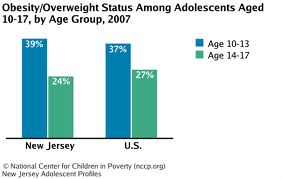Data Makes a Difference Workshop Held in Newark
October 11, 2012 | Community News
 There’s an enormous amount of information available about health disparities among various socio-economic and ethnic populations. These disparities are impacted by a variety of issues such as income, education, geographic location and access to resources. Yet many who are working to improve conditions and create health equity for all individuals do not have access to the data they need – nor do they know how to leverage it to benefit the populations at risk. To that end, a special training workshop arranged with the help of the New Jersey Partnership for Healthy Kids (NJPHK), was held October 10 at the YMCA of Newark and Vicinity entitled: “Data Makes a Difference: Practical Tips for Using Data to Address Health Disparities.”
There’s an enormous amount of information available about health disparities among various socio-economic and ethnic populations. These disparities are impacted by a variety of issues such as income, education, geographic location and access to resources. Yet many who are working to improve conditions and create health equity for all individuals do not have access to the data they need – nor do they know how to leverage it to benefit the populations at risk. To that end, a special training workshop arranged with the help of the New Jersey Partnership for Healthy Kids (NJPHK), was held October 10 at the YMCA of Newark and Vicinity entitled: “Data Makes a Difference: Practical Tips for Using Data to Address Health Disparities.”
The goal was to help NJPHK community partners, their members, staff and volunteers, develop or expand their knowledge of how to identify, analyze, interpret and harness available data to improve their efforts related to health disparities, in the communities they serve.
The session was led by Scott Hebert, principal associate from Community Science based in Gaithersburg, Md. Community Science is a research and development organization working with governments, foundations and non-profit organizations on solutions to social problems through community and other systems changes. Hebert shared practical tips for using statistics to address health disparities and guided the participants’ critical thinking in various areas including:
- Key factors impacting health
- Examples of useful local, regional and national data sources and how to find them
- How to select concrete and specific starting points for data inquiry and what makes a good research question
- How to compare the health conditions of the population of interest with another population/s to demonstrate a disparity
- Strategies on how best to approach the process of data access, interpretation and use to strengthen participants’ efforts to bring their own community together to address health disparities
More than 20 representatives from public and private organizations and agencies throughout the state and vicinity attended the session. Among them were the Y, the African Life Center, Rutgers College of Nursing, Newark Community Health Centers, Inc., the Robert Wood Johnson Foundation and the NJ Department of Health.
The conference was well-received, according to host Courtney Price, project manager for NJPHK-Newark, as it provided a solid foundation for how best to source and use data that’s readily available.
“Knowing where to find and how to use the right data to explain or give credibility to an organization’s work in reducing health disparities is critical in today’s environment,” said Courtney Price, project manager NJPHK-Newark.
“Taxpayers, foundations and donors providing funding for any initiative need to clearly understand the problem and know how their dollars are being effectively spent, while organizations need to be able to quantify results,” stated Darrin Anderson, Deputy Director and co-chair of the Region II Health Equity Council. “Knowledge is power, so having the right data can really make all the difference.”
SHARE:
Contact Us: 609-278-9622
Follow Us On: